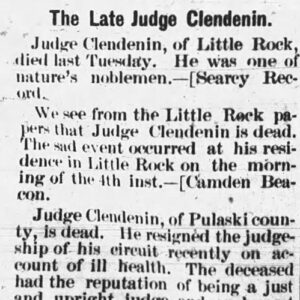 John J. Clendenin Obituary
John J. Clendenin Obituary
Entry Category: Law
 John J. Clendenin Obituary
John J. Clendenin Obituary
Johnson (Lynching of)
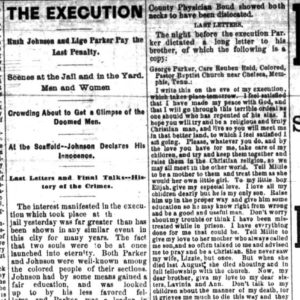 Johnson and Parker Execution Story
Johnson and Parker Execution Story
 Johnson Campaign
Johnson Campaign
Johnson County Executions of 1883
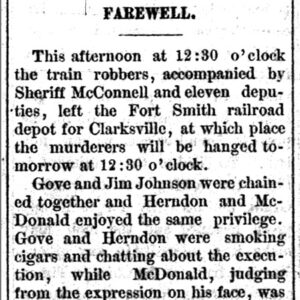 Johnson County Executions Story
Johnson County Executions Story
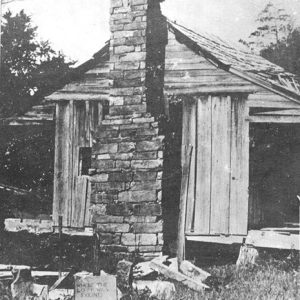 Ambrose Johnson Home
Ambrose Johnson Home
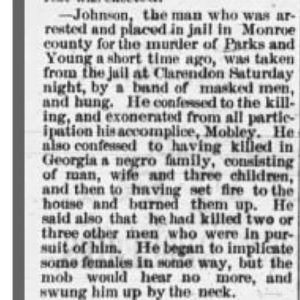 Johnson Lynching Article
Johnson Lynching Article
Johnson v. State (1942)
 Johnson vs. Rockefeller
Johnson vs. Rockefeller
Johnson, Anthony “Andy” (Execution of)
 Anthony Johnson Execution Article
Anthony Johnson Execution Article
Johnson, Benjamin
Johnson, Cecil Ernest
Johnson, Glenn T.
Johnson, Henry (Lynching of)
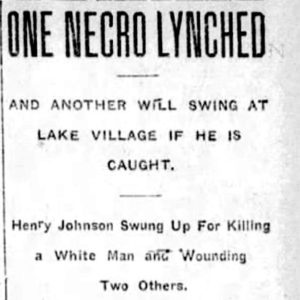 Henry Johnson Lynching Article
Henry Johnson Lynching Article
Johnson, Hugh (Lynching of)
Johnson, James Douglas “Justice Jim”
Johnson, Jeff (Lynching of)
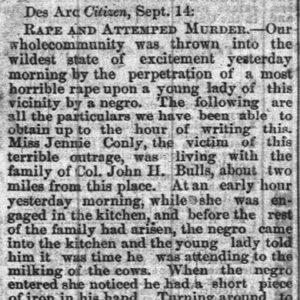 Jeff Johnson Lynching Article
Jeff Johnson Lynching Article
Johnson, Leon
Johnson, Robert Ward
Johnson, Thomas
Johnson, William (Execution of)
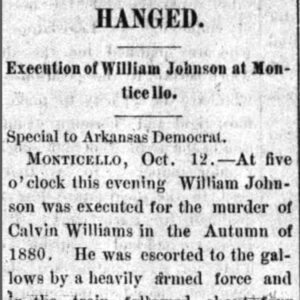 Story on the Execution of William Johnson
Story on the Execution of William Johnson
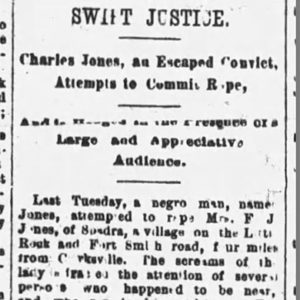 Charles Jones Execution Article
Charles Jones Execution Article
Jones, Charles (Execution of)
Jones, Henry (Lynching of)
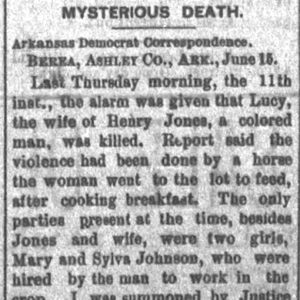 Henry Jones Lynching Article
Henry Jones Lynching Article
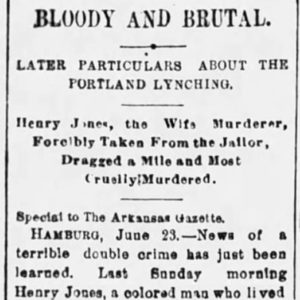 Henry Jones Lynching Article
Henry Jones Lynching Article
Jones, James (Lynching of)
Jones, James Fred
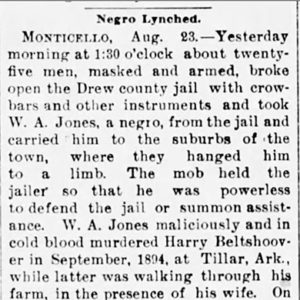 James Jones Lynching Article
James Jones Lynching Article
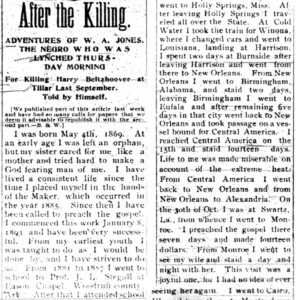 James Jones Lynching Article
James Jones Lynching Article
Jones, Jesse (Execution of)
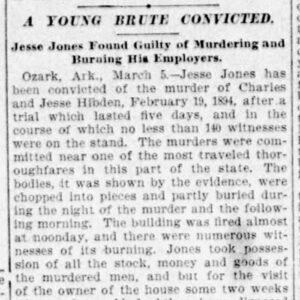 Jesse Jones Conviction Story
Jesse Jones Conviction Story
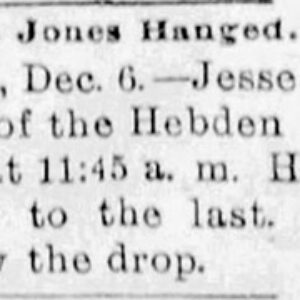 Jesse Jones Execution Story
Jesse Jones Execution Story
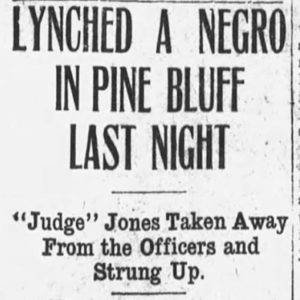 Judge Jones Lynching Article
Judge Jones Lynching Article
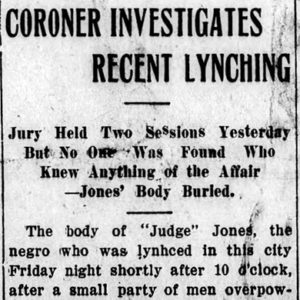 Judge Jones Lynching Article
Judge Jones Lynching Article
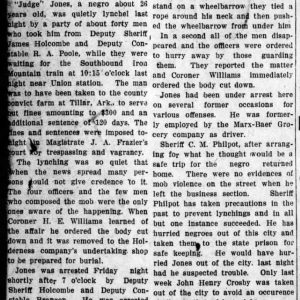 Judge Jones Lynching Article
Judge Jones Lynching Article
Jones, Judge (Lynching of)
 Maxine Jones
Maxine Jones
Jones, Maxine Temple
Jones, Paula Juels
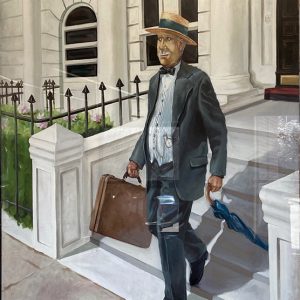 Scipio Jones Portrait
Scipio Jones Portrait
Jones, Scipio Africanus
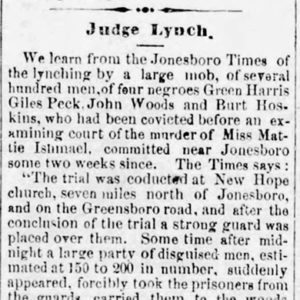 Jonesboro Lynching Article
Jonesboro Lynching Article
Jonesboro Lynching of 1881
aka: Greensboro Lynching of 1881
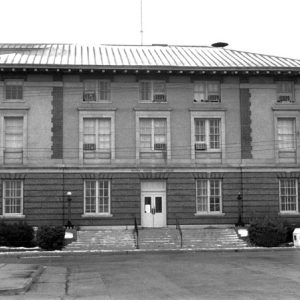 Jonesboro U.S. Courthouse
Jonesboro U.S. Courthouse




